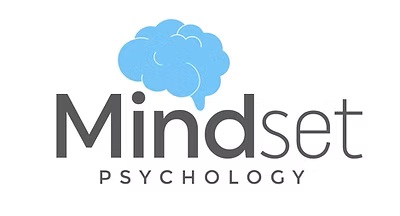As both the city and state of New York continue to grow, so does the demand for comprehensive and accessible mental health care. With its rich cultural diversity and fast-paced lifestyle, New York is home to a wide range of individuals with unique emotional, psychological, and social needs. This diversity calls for an equally diverse group of mental health professionals, each bringing different areas of experience and specialization. Among these professionals, a Psychiatric Nurse Practitioner in New York plays a vital and increasingly recognized role.
These advanced practice nurses are specially trained to diagnose mental health conditions, provide therapy, and prescribe medication, offering a holistic and patient-centered approach to care. This guide will explore how psychiatric nurse practitioners help bridge critical gaps in the mental health system, especially in underserved communities, and how they contribute to expanding high-quality, accessible mental health services throughout New York.
Who is a Psychiatric Nurse Practitioner?
Psychiatric nurse practitioners (PNPs) specialize in mental health illnesses and treatments, helping patients by assessing and diagnosing mental disorders or substance abuse issues and then providing treatment plans. As nurse practitioners, PNPs must attend nursing school and earn either an associate degree or a bachelor of science in nursing degree from an accredited nursing program. Then, to become a registered nurse, a prospective PNP must pass the National Council Licensure program exam (NCLEX). In most cases, registered nurses will need two years of experience in a clinical setting before attending a PMHNP program to finally become certified and ready to work as a PNP.
A PNP may also adopt a holistic approach in their practice, combining a “mind-spirit-body-emotion approach of patient care to the traditional practice of a nurse practitioner” (Faubion, 2024). They also implement both Eastern and Western methods of treatment, which offers a more diverse scope that can be applied to an equally more diverse range of patients. Holistic PNPs may be an effective and beneficial option for those interested in a treatment plan that includes alternative methods such as “herbal therapy, acupressure, healing touch, and nutrition counseling” (Faubion, 2024).
The Role of the Psychiatric Nurse Practitioner in Mental Health Care
To effectively diagnose and assess mental health conditions, psychiatric nurse practitioners (PNPs) utilize a comprehensive and individualized approach. This process often includes a combination of thorough patient interviews, psychological evaluations, and a detailed review of medical, psychiatric, and family histories. These assessments provide critical insight into each patient’s unique mental health profile, allowing PNPs to accurately identify conditions such as depression, bipolar disorder, schizophrenia, anxiety disorders, and substance use disorders, among others. With this information, PNPs develop personalized treatment plans that are tailored to the specific needs of each individual.
These treatment plans typically involve a combination of lifestyle modifications, medication management, and psychotherapy. PNPs are fully licensed to prescribe psychotropic medications and make necessary dosage adjustments based on the patient’s response and progress. In addition to medication management, many PNPs also provide direct psychotherapy, utilizing evidence-based approaches such as Cognitive Behavioral Therapy (CBT), Dialectical Behavior Therapy (DBT), and psychodynamic therapy. These therapeutic techniques are designed to help patients better understand their emotions, behaviors, and thought patterns, ultimately empowering them to manage their mental health more effectively. Through this holistic and integrative care model, PNPs play a critical role in delivering accessible, high-quality mental health services across diverse populations.
Bridging Mental Health Care Gaps in New York
With mental health care being in high demand, challenges such as long wait times for psychiatrists and limited access to specialized care are common for New Yorkers to face. However, with timely appointments and flexible care options, PNPs combat this issue by providing more immediate and convenient care and increasing access to mental health services. According to the National Alliance of Mental Illness (NAMI), 22.8% of U.S. adults experienced mental illness in 2021 (57.8 million people). Additionally, 7.6% of U.S. adults experienced a co-occurring substance use disorder and mental illness in 2021. This further demonstrates how mental health care is in very high demand, and PNPs play a large and important role in ensuring that care is also highly available.
PNPs are able to reach underserved communities as they work in a large array of locations such as “public health agencies, student health clinics, veterans administration psychiatric facilities, primary healthcare clinics, and more” (Gaines, 2023).
Benefits of Working with a Psychiatric Nurse Practitioner
Psychiatric Nurse Practitioners (PNPs) often apply a holistic approach to mental health care, considering the emotional, social, and environmental influences that impact a patient’s overall well-being. Rather than focusing solely on symptoms, PNPs assess the broader context of a person’s life, including family dynamics, social support systems, trauma history, and lifestyle factors. This whole-person perspective becomes especially valuable during psychotherapy, as it allows for more personalized interventions that lead to longer-lasting treatment outcomes. By addressing the root causes of distress and not just the surface-level symptoms, PNPs help patients make meaningful, sustainable progress in their mental health journey.
In comparison to other mental health professionals, PNPs also tend to offer more accessible and flexible care, often providing support in a wide variety of settings, including community clinics, private practices, hospitals, and even emergency psychiatric units. This versatility allows them to reach more individuals, including those who may not otherwise have access to consistent mental health services. PNPs are uniquely positioned to provide both medical and therapeutic care, which includes offering emergency psychiatric evaluations and crisis support when needed. Their collaborative work style means they often coordinate care with therapists, social workers, primary care doctors, and other specialists, ensuring patients receive comprehensive and integrated treatment. This team-based approach enhances the quality and continuity of care, helping patients receive support that’s not only effective but also respectful of their unique backgrounds and challenges.
Common Conditions Treated by Psychiatric Nurse Practitioners
Mental health conditions such as depression, anxiety, mood disorders, ADHD, and substance use disorders are commonly treated by psychiatric nurse practitioners (PNPs), who are highly trained in both the medical and therapeutic aspects of care. PNPs are equipped to conduct thorough assessments, provide accurate diagnoses, and develop individualized treatment plans that reflect the specific needs and goals of each patient. Their integrative approach often combines medication management with psychotherapy, allowing for a comprehensive and balanced strategy that addresses both the biological and emotional dimensions of mental health.
To support long-term healing and stability, PNPs also incorporate lifestyle interventions and practical changes that complement clinical treatment. This may include recommendations for sleep hygiene, nutrition, exercise, mindfulness practices, or stress reduction strategies. Ongoing evaluations are built into the care process, enabling PNPs to monitor progress closely and make timely adjustments to ensure the best possible outcomes. Through this dynamic and personalized model of care, patients are empowered to take an active role in their mental health journey and experience more lasting improvements in their overall well-being.
How to Find the Right Psychiatric Nurse Practitioner in New York
Although all certified psychiatric nurse practitioners (PNPs) are trained to treat a wide range of mental health conditions, it’s essential to recognize that each practitioner brings a unique combination of skills, therapeutic approaches, and areas of specialization. Finding the right PNP for your specific needs means doing a bit of research and reflection. Consider their experience with patients who share similar concerns, their familiarity with particular diagnoses, and the methods they typically use in treatment. Some may focus more heavily on medication management, while others may emphasize psychotherapy, lifestyle interventions, or integrative approaches. Taking the time to understand their treatment style can help you make a more informed decision.
Scheduling and participating in an initial consultation is one of the most effective ways to determine whether a PNP is the right fit for you. This first meeting allows you to ask questions, express your goals, and get a feel for their communication style and overall compatibility. It’s also a great opportunity to inquire about practical matters, such as availability, insurance, and accessibility. Even if you don’t currently require virtual care, it’s wise to ask whether they offer remote mental health services, such as telehealth appointments. Your circumstances or preferences may change in the future, and having a provider who offers flexible care options can be a valuable asset in maintaining consistent support. Choosing the right provider is a crucial step toward long-term mental wellness, so take the time to ensure your needs align with their expertise.
How Mindset Psychology Connects Clients with Psychiatric Nurse Practitioners
Mindset Psychology is a trusted and experienced provider of comprehensive mental health care, offering personalized support for individuals across a wide range of needs. Our practice includes access to highly qualified psychiatric nurse practitioners, who work alongside our team of certified psychologists to deliver collaborative, integrative care. Whether you’re seeking help for anxiety, depression, mood disorders, or other concerns, we provide a combination of medication management, psychotherapy, and tailored treatment planning to support your well-being in a compassionate and effective way.
Through our services, we prioritize individualized care that respects your goals, values, and mental health journey. Our therapists take the time to understand your unique experiences, ensuring that every aspect of your treatment is aligned with what works best for you. If you’re ready to begin or continue your path toward improved mental health, we invite you to connect with a psychiatric nurse practitioner in New York at Mindset Psychology. Visit our website today to learn more and schedule your first appointment—we’re here to support you every step of the way.
Conclusion
Psychiatric nurse practitioners (PNPs) are certified and highly trained professionals who specialize in diagnosing and treating a wide range of mental health conditions. Their role goes beyond prescribing medications—they also curate individualized treatment plans, provide psychotherapy, and offer ongoing support tailored to each patient’s needs. By blending medical expertise with compassionate mental health care, PNPs are uniquely positioned to deliver well-rounded, accessible treatment for those navigating emotional or psychological challenges.
If you’re ready to take a proactive step toward better mental health, consider working with a psychiatric nurse practitioner in New York. At Mindset Psychology, our therapists are dedicated to providing thoughtful, evidence-based care that meets you where you are. Through our services, which include psychiatric evaluations, medication management, and therapy, we aim to support every aspect of your mental wellness. Reach out to us today and begin your journey with a provider who truly understands how to help you heal and grow—mindfully and professionally.

